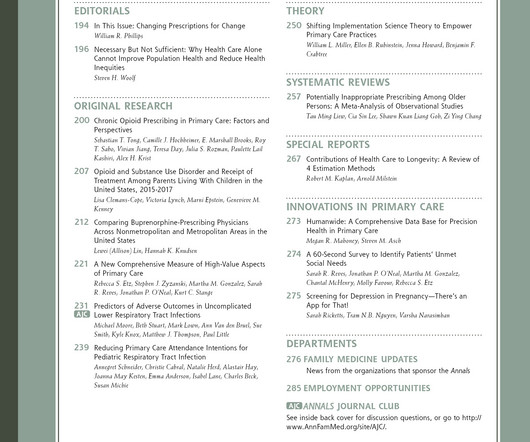Study compares adverse events after two types of bariatric surgery in adolescents
Medical Xpress
NOVEMBER 15, 2022
Adolescents who underwent sleeve gastrectomy, a type of weight-loss surgery that involves removing part of the stomach, were less likely to go the emergency room or be admitted to the hospital in the five years after their operations than those who had their stomachs divided into pouches through gastric bypass surgery, according to new research.














Let's personalize your content